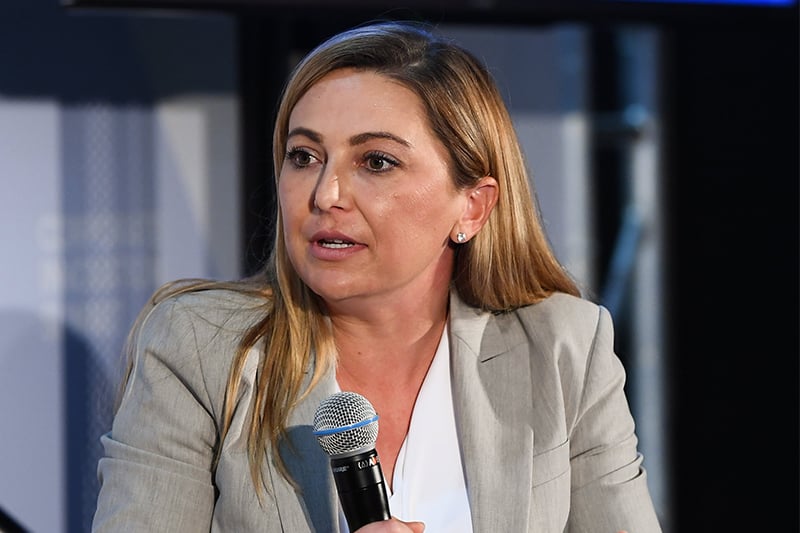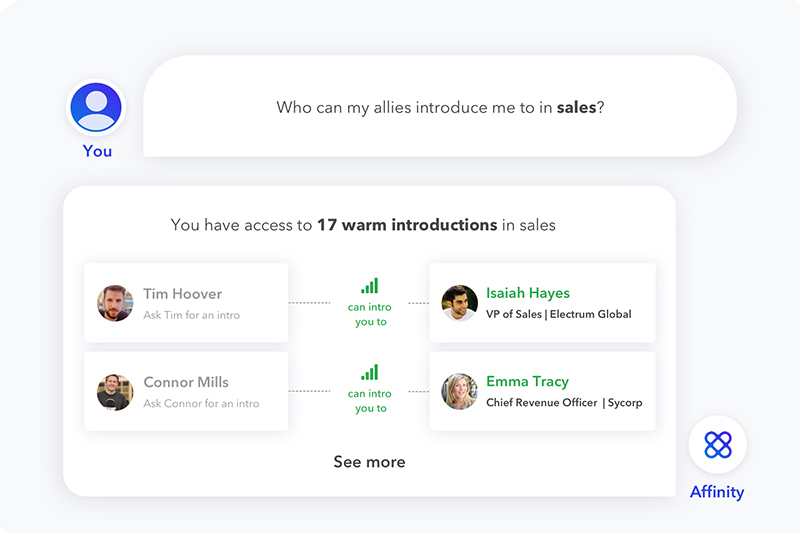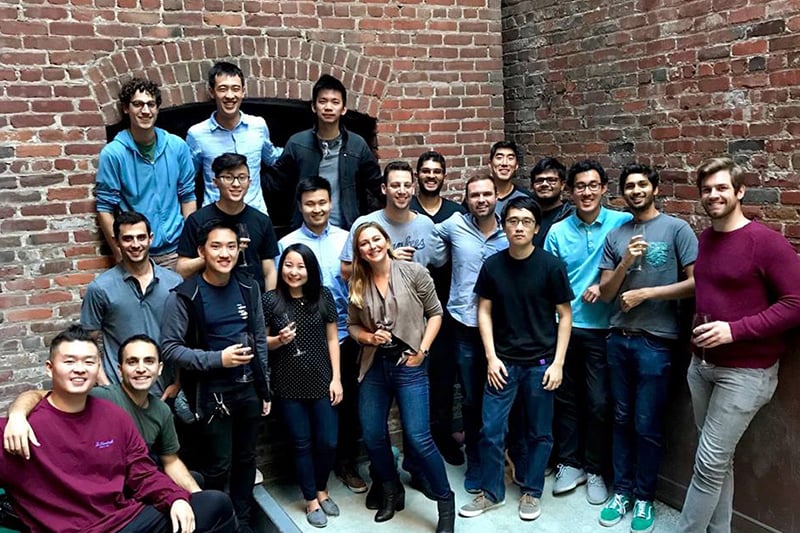Is this the new era of LinkedIn? Silicon Valley startup Affinity wants to leverage your digital footprint and big data to help you find the business relationships that matter most.
You may have 500 connections on LinkedIn, but how well do you know them? And how able are you to leverage those relationships when required? Having just secured USD 26.5 million in series B funding and won ZNet’s coveted Emergence Maturity Index (EMI) Award, these are questions that relationship management platform Affinity is striving to answer. Tapping into large-scale communications data via your team’s email inbox, they create an up-to-date, virtual Rolodex of every company and person your team has interacted with. “Affinity is a relationship intelligence platform,” explains Vice President of Marketing Anne Gherini. “We’re taking this treasure trove of data that every organisation sits on, which is communications data, and we’re structuring it, cultivating it, and weaving it all together.” Sitting down with Hive Life at RISE, she talked through the power of ‘warm’ connections, and how artificial intelligence could give us all a leg up in the world of business.

Photo Credit: Stephen McCarthy/RISE via Sportsfile
There’s no doubt that in business, the personal often matters almost as much as the professional when it comes to making things happen. But, in an era of ever-increasing business and social networks, many managed purely online, the question is, how can we make the most of and manage our connections. This is where Affinity’s relationship management system comes in. Founded in 2014 by Forbes 30 under 30 entrepreneurs Shubham Goel and Ray Zhou in collaboration with big-time American investor Joe Lonsdale, the company aims to bring together all aspects of a person’s contacts, making it possible to navigate the connections of a whole firm for the greater good. Currently available on all major platforms, “The cool thing about Affinity is, from day one, you can sync your email and calendar data and jump straight in. So, whether you’re on Gmail or Outlook, that data syncs into Affinity, and then automatically you get a 360 Rolodex of every person and company your team has ever talked to from the beginning of their inboxes. We’re leveraging technology and big data to make it less work for the end-user, with more insights and more analytics, making their day to day easier. We’re building what we call smart enterprises,” says Anne. “It enables people to easily manage their collective network.”
You might also like From Google to Twitter, Silicon Valley Prodigy’s Startup Valued at USD200M

While Customer Relationship Management (CRM) systems have been around since the 1970s, what sets Affinity apart from popular tools such as LinkedIn and Salesforce is its analysis. “LinkedIn is really a repository of the people I meet. It doesn’t give any context on how I met them, or how well I know them. So, oftentimes, people will ask me, ‘Hey, can you introduce me to so and so because I see you’re connected on LinkedIn? And I will have no idea who that person is!” explains Anne. “Affinity is different because we are tapping into communication data to come up with a relationship score for every person within your team’s collective network. We use natural language processing and machine learning to understand past introductions and spot warm introductions,” she furthers. “One of the most powerful ways to get in touch with someone, whether it’s a prospect or a future investment, is through a warm introduction. Cold emails just don’t work. What Affinity allows you to do is spot them. So, maybe one of your colleagues has a 92% relationship score with a prospect that you really want to talk to. You would then realise you should ask for an intro.”

With a background at various startups in San Francisco, Anne started at Affinity in 2017. “I joined them to run their marketing and partnerships. From there, we have grown from less than 22 people to about 65 with over 500 investment firms that are on our product. It’s been incredibly successful.” The biggest issue they face is gaining the initial trust of their clientele – firms like Bain Capital Ventures, real estate giant Colliers International and MassMutual Life Insurance. “People are usually a little hesitant to sync their email. But, once they see who our customers are, which are some of the biggest banks, private equity firms, venture capital firms, they see all the security and privacy protection that we have, we can get over that hurdle,” Anne explains. Priced at a monthly membership of USD 125 per seat, they are on a mission to revolutionise business relationships one inbox at a time. To mitigate any unease, they have built in the facility for people to share only what they want with the wider network. “Obviously, email is sensitive data. We built privacy controls within the system. So, let’s say you don’t want to share the email body with anyone else on your team. You could set that in Affinity. Or, maybe you don’t want to sync the emails you’re sending to your mom. You can set that.”
So far, Affinity has synthesised over a billion emails in their quest to maximise the benefits that can come from ‘warm’ contacts. For them, however, quality is rising up over quantity as the world seeks to redefine just what kind of connections really count. “Currently, we’re focused on followers. We’re focused on getting more, and I think we’re going to retract,” says Anne. “We’re going to get rid of these vanity metrics that we’ve been chasing. It doesn’t matter how many Instagram followers you have, or Facebook connections. What really matters is your real relationships. So I think the retraction we’re going to see in the future is a focus on quality. And, we’re going to use technology to tell us the relationships that really matter.”
Banner Photo Credit: Stephen McCarthy/RISE via Sportsfile
Related Articles
5 Top VC Tips for Entrepreneurs in Southeast Asia
ORII: The Smart Ring that Promises a Future of Screenless Connectivity
Meet The Recruitment Platform Changing The Game For Fresh Grads





